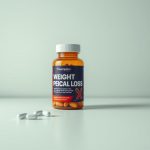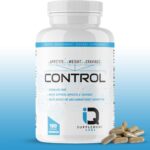Are you on a weight loss journey and seeking extra support? Look no further! This ultimate guide to weight loss supplements has got you covered. Whether you’re a beginner or a seasoned dieter, this article will provide essential information about the different types of weight loss supplements available in the market. From fat burners to appetite suppressants, we’ll explore their benefits, potential side effects, and how to choose the right one for your specific needs. Get ready to take your weight loss game to the next level with this comprehensive guide.

Table of Contents
Understanding Weight Loss Supplements
What are weight loss supplements?
Weight loss supplements refer to products that are designed to aid in weight loss. They often come in the form of pills, capsules, powders, or liquids, and are taken orally. These supplements typically contain a variety of ingredients, such as vitamins, minerals, herbal extracts, and other substances that claim to boost metabolism, control appetite, or increase fat burning.
How do weight loss supplements work?
Weight loss supplements work in different ways, depending on their ingredients and mechanisms of action. Some supplements, known as thermogenic fat burners, aim to increase the body’s metabolic rate, thereby helping to burn more calories and fat. Others, such as appetite suppressants, work by reducing hunger and cravings, making it easier to stick to a reduced-calorie diet. Carb blockers and fat blockers, on the other hand, aim to inhibit the absorption of carbohydrates or fats, respectively, helping to reduce overall calorie intake. Metabolism boosters and thyroid regulators claim to support optimal thyroid function and metabolism, while cortisol blockers and stress-reducing supplements focus on managing stress and its impact on weight gain.
Are weight loss supplements safe?
The safety of weight loss supplements can vary depending on the specific product and its ingredients. While many supplements on the market are generally considered safe when used as directed, it is important to be aware that they are not regulated as rigorously as prescription medications. This means that the purity, potency, and effectiveness of these products may not be guaranteed. Additionally, some weight loss supplements may have potential side effects or drug interactions, especially for individuals with pre-existing medical conditions or those taking certain medications. It is always recommended to consult with a healthcare professional before starting any new dietary supplement.
How to choose the right weight loss supplement for you
Choosing the right weight loss supplement for your needs can be a daunting task, given the wide range of options available on the market. Here are a few considerations to keep in mind when selecting a weight loss supplement:
- Research the ingredients: Look for supplements that have scientifically backed ingredients that are known to be effective for weight loss. Avoid products that contain potentially harmful or unproven substances.
- Read customer reviews: Feedback from other users can be helpful in determining the efficacy and safety of a weight loss supplement. Look for reviews from reputable sources and consider the overall consensus.
- Consult with a healthcare professional: Discussing your weight loss goals and health history with a healthcare professional can help you determine the most suitable supplement for your specific needs. They can also recommend supplements that are compatible with any existing medications or conditions.
- Consider your lifestyle: Choose a weight loss supplement that fits well with your lifestyle. For example, if you have difficulty controlling your appetite, an appetite suppressant may be a good option for you. If you are looking to boost your energy levels and increase fat burning during workouts, a thermogenic fat burner may be more suitable.
Remember, weight loss supplements should always be used in conjunction with a balanced diet and regular exercise. They are not magic pills and should not be relied upon as the sole solution for weight loss.
Different Types of Weight Loss Supplements
When exploring weight loss supplements, you will come across various types that claim to offer different benefits. It is important to understand the different types and how they work before deciding which one may be suitable for you. Here are some of the most common types of weight loss supplements:
Thermogenic Fat Burners
Thermogenic fat burners are designed to increase the body’s thermogenesis, which in turn raises the metabolic rate and enhances calorie and fat burning. These supplements often contain ingredients such as caffeine, green tea extract, and capsaicin, which have been shown to have thermogenic properties.
Appetite Suppressants
Appetite suppressants work by reducing hunger sensations and cravings, helping to control calorie intake and promote weight loss. Common ingredients found in appetite suppressant supplements include konjac root extract (glucomannan), garcinia cambogia, and green tea extract.
Carb Blockers
Carb blockers, also known as starch blockers, are designed to inhibit the enzymes responsible for breaking down carbohydrates in the digestive system. By doing so, they aim to reduce the absorption of carbohydrates and lower overall calorie intake. Key ingredients in carb blocker supplements often include white kidney bean extract and green coffee bean extract.
Fat Blockers
Similar to carb blockers, fat blockers aim to inhibit the digestion and absorption of dietary fats, preventing their absorption into the bloodstream. Fat blocker supplements typically contain ingredients such as chitosan and orlistat.
Metabolism Boosters
Metabolism booster supplements claim to increase the body’s metabolic rate, leading to enhanced calorie burning and weight loss. Ingredients commonly found in these supplements include caffeine, green tea extract, and forskolin.
Thyroid Regulators
Thyroid regulators are formulated to support optimal thyroid function, as the thyroid plays a crucial role in regulating metabolism. These supplements often contain ingredients like iodine, selenium, and tyrosine.
Cortisol Blockers
Cortisol blockers, also known as stress blockers, aim to reduce the levels of the stress hormone cortisol in the body. High cortisol levels have been associated with weight gain and increased fat storage. Common ingredients found in cortisol blocker supplements include ashwagandha and phosphatidylserine.
Stress Reducing Supplements
Stress-reducing supplements are designed to help manage stress, as chronic stress has been linked to weight gain and difficulty losing weight. Ingredients such as Rhodiola rosea, ashwagandha, and L-theanine are commonly found in these supplements.
It’s worth noting that many weight loss supplements may contain a combination of these different types, as they aim to target various aspects of weight loss. The most effective weight loss supplement for you will depend on your individual goals, preferences, and any underlying health conditions. https://www.youtube.com/embed/Qbr7r-12mRo
Effectiveness of Weight Loss Supplements
Scientific studies on weight loss supplements
When it comes to determining the effectiveness of weight loss supplements, scientific studies play a crucial role in providing evidence-based information. While some studies suggest that certain supplements may have a positive impact on weight loss, it is important to approach these findings with caution. The quality and methodology of the studies, as well as the specific supplement formulations used, can vary significantly. Additionally, many studies have small sample sizes or are conducted over short periods, making it difficult to draw definitive conclusions.
It is worth noting that weight loss supplements alone are not a substitute for healthy lifestyle habits such as a balanced diet and regular exercise. They should be used as an adjunct to these lifestyle changes, rather than as a standalone solution.
Common ingredients and their effectiveness
Certain ingredients commonly found in weight loss supplements have been studied for their potential effects on weight loss. Here are some ingredients and their reported effectiveness:
- Green tea extract: Green tea has been shown to have thermogenic and antioxidant properties, potentially aiding in weight loss and overall health.
- Garcinia cambogia: This fruit extract has been claimed to suppress appetite and inhibit the enzyme responsible for converting excess carbohydrates into fat.
- Raspberry ketones: These compounds are believed to increase the breakdown of fat within cells, although there is limited scientific evidence to support their use for weight loss.
- Caffeine: As a stimulant, caffeine can increase energy expenditure and fat oxidation. However, tolerance and potential side effects should be considered.
- Conjugated Linoleic Acid (CLA): CLA has been studied for its potential to reduce body fat and increase lean body mass. However, the effects are modest and may vary depending on the individual.
- Hydroxycut: This popular weight loss supplement contains a combination of ingredients, including caffeine, that may help boost metabolism and aid in weight loss.
- Orlistat: Available as a prescription medication or over-the-counter supplement, orlistat inhibits the absorption of dietary fats and may lead to modest weight loss.
- Glucomannan: This natural fiber derived from the konjac root has been shown to promote feelings of fullness and aid in weight loss.
- Green coffee bean extract: Some studies suggest that the chlorogenic acid in green coffee bean extract can help reduce body weight and body fat.
- Bitter Orange: This ingredient contains an alkaloid called synephrine, which may increase calorie expenditure and suppress appetite.
It is important to note that while some ingredients may show promising results in certain studies, their effects may not be consistent or significant in all individuals. The effectiveness of weight loss supplements can vary depending on factors such as genetics, diet, exercise habits, and overall lifestyle.
Potential side effects of weight loss supplements
Weight loss supplements, like any other dietary supplement, can potentially have side effects. These can vary depending on the specific supplement and its ingredients. Common side effects associated with weight loss supplements include:
- Upset stomach
- Nausea
- Headache
- Increased heart rate
- High blood pressure
- Sleep disturbances
- Anxiety or irritability
- Allergic reactions
It is crucial to read the labels, follow the recommended dosages, and be aware of any potential side effects associated with the specific weight loss supplement you are considering. If you experience any adverse reactions, it is important to discontinue use and consult a healthcare professional.
Always keep in mind that weight loss supplements should be used in conjunction with a healthy lifestyle that includes a balanced diet and regular exercise. They are not a magic solution and should not be relied upon as the sole method for achieving weight loss goals.
Top Weight Loss Supplements in the Market
With a myriad of weight loss supplements available in the market, it can be challenging to determine which ones are the most effective. Here are some of the top-rated weight loss supplements based on popularity and reported effectiveness:
Green Tea Extract
Green tea extract is derived from the leaves of the Camellia sinensis plant and is rich in antioxidants. It has been studied for its potential effects on weight loss due to its thermogenic and fat-burning properties. Additionally, green tea extract may provide other health benefits, such as improved brain function and reduced risk of certain diseases.
Garcinia Cambogia
Garcinia cambogia is a fruit extract that has gained popularity for its alleged weight loss benefits. It is believed to suppress appetite and inhibit the enzyme responsible for converting excess carbohydrates into fat. However, the scientific evidence supporting its efficacy is mixed, and more research is needed to determine its true effects on weight loss.
Raspberry Ketones
Raspberry ketones are compounds derived from red raspberries that are believed to help break down fat within cells and increase metabolism. However, the scientific evidence supporting their effectiveness for weight loss is limited, and more research is needed.
Caffeine
Caffeine is a well-known stimulant found in various weight loss supplements. It can increase energy expenditure and fat oxidation, thereby potentially aiding in weight loss. However, it is important to be mindful of caffeine intake and potential side effects such as jitteriness, increased heart rate, and sleep disturbances.
Conjugated Linoleic Acid (CLA)
Conjugated Linoleic Acid (CLA) is a fatty acid commonly found in meat and dairy products. It has been studied for its potential to reduce body fat and increase lean body mass. However, the effects of CLA on weight loss are modest and may vary depending on individual factors.
Hydroxycut
Hydroxycut is a popular weight loss supplement that contains a combination of ingredients, including caffeine, green tea extract, and other herbal extracts. It is claimed to increase metabolism and aid in weight loss. However, as with any weight loss supplement, individual results may vary, and it is important to follow the recommended dosage and assess the potential side effects.
Orlistat
Orlistat is a medication available both as a prescription and an over-the-counter weight loss supplement. It works by inhibiting the absorption of dietary fats, leading to modest weight loss. Orlistat is recommended for individuals with a high body mass index (BMI) and should be used under the supervision of a healthcare professional.
Glucomannan
Glucomannan is a natural dietary fiber derived from the konjac root. It has been shown to increase feelings of fullness and reduce calorie intake, potentially aiding in weight loss. Glucomannan is often available in the form of capsules or powder and should be taken with plenty of water to prevent choking.
Green Coffee Bean Extract
Green coffee bean extract is derived from unroasted coffee beans and contains chlorogenic acid, which is believed to have weight loss benefits. Studies suggest that chlorogenic acid may help reduce body weight and body fat. It is important to note that green coffee bean extract contains caffeine, so individuals sensitive to caffeine should exercise caution.
Bitter Orange
Bitter orange contains an alkaloid called synephrine, which may increase calorie expenditure and suppress appetite. It has been used in weight loss supplements as a potential alternative to ephedrine, which was banned due to safety concerns. However, more research is needed to determine the safety and effectiveness of bitter orange for weight loss.
It is worth mentioning that while these weight loss supplements have gained popularity, individual results may vary. It is essential to consult with a healthcare professional before starting any new supplement to ensure safety and effectiveness for your specific needs.

How to Maximize the Effects of Weight Loss Supplements
Weight loss supplements should be used as part of a comprehensive approach to weight loss, which includes adopting a healthy lifestyle. Here are some tips to maximize the effects of weight loss supplements:
Follow a balanced diet
While weight loss supplements can provide certain benefits, they should not replace a healthy and balanced diet. A diet rich in whole foods, such as fruits, vegetables, lean proteins, and whole grains, can provide essential nutrients and support weight loss efforts. Focus on portion control, choose nutrient-dense foods, and limit processed foods and added sugars.
Engage in regular exercise
Physical activity is crucial for weight loss and overall health. Combine your weight loss supplement with regular exercise to maximize results. Aim for a mix of cardiovascular exercise, strength training, and flexibility exercises. Consult with a fitness professional or healthcare provider to determine the best exercise program for your specific needs and goals.
Stay hydrated
Proper hydration is essential for overall health and can support weight loss efforts. Drinking an adequate amount of water can help increase feelings of fullness, support digestion, and maintain optimal bodily functions. Aim to drink at least 8 cups (64 ounces) of water per day, or more if you engage in intense physical activity or live in a hot climate.
Get enough sleep
Adequate sleep is vital for overall health and can impact weight loss efforts. Poor sleep has been associated with increased appetite and cravings, reduced metabolism, and hormonal imbalances. Aim for 7-9 hours of quality sleep each night to support weight loss and overall well-being.
Manage stress levels
Chronic stress can interfere with weight loss and overall health. Stress can contribute to emotional eating, disrupt sleep, and affect hormone balance. Incorporate stress management techniques such as meditation, deep breathing exercises, and regular relaxation practices into your daily routine to support weight loss efforts.
Consult a healthcare professional
Before starting any weight loss supplement, it is important to consult with a healthcare professional, especially if you have any pre-existing medical conditions or are taking any medications. They can provide personalized guidance and help ensure that the weight loss supplement is safe and appropriate for you.
Remember, weight loss supplements should always be used in conjunction with a healthy lifestyle that includes a balanced diet, regular exercise, adequate sleep, stress management, and hydration. There is no magic pill for weight loss, and sustainable results require long-term lifestyle changes.
The Importance of a Healthy Lifestyle
Weight loss supplements can be a helpful tool to support weight loss efforts, but they should never replace the foundation of a healthy lifestyle. Here’s why a healthy lifestyle is crucial for successful and sustainable weight loss:
Weight loss supplements should not replace a healthy lifestyle
Weight loss supplements should be viewed as a complement to a healthy lifestyle, rather than a substitute. While these supplements may provide certain benefits, they cannot compensate for a poor diet, sedentary lifestyle, or unhealthy behaviors. Sustainable weight loss requires long-term changes in eating habits, physical activity levels, and overall lifestyle choices.
Nutrition and portion control
Adopting a healthy eating pattern is essential for weight loss and overall health. Focus on consuming a variety of nutrient-dense foods that provide essential vitamins, minerals, and antioxidants. Practice portion control by being mindful of portion sizes and listening to your body’s hunger and fullness cues. Incorporate whole grains, lean proteins, fruits, vegetables, and healthy fats into your diet.
Physical activity and calorie expenditure
Regular physical activity is crucial for weight loss and overall well-being. Engaging in both cardiovascular exercise and strength training can help burn calories, build lean muscle mass, and improve metabolism. Aim for at least 150 minutes of moderate-intensity aerobic activity or 75 minutes of vigorous-intensity aerobic activity per week, along with strength training exercises at least two days per week.
Long-term behavior changes
Weight loss is not just about shedding pounds; it’s about forming healthy habits that can be sustained over the long term. Focus on making gradual, sustainable changes to your eating habits and physical activity levels. This may include meal planning, cooking at home more often, finding enjoyable forms of exercise, and seeking support from friends, family, or a support group.
By prioritizing a healthy lifestyle, you can maximize the effects of weight loss supplements and increase your chances of long-term success.

Precautions and Potential Risks
While weight loss supplements can be a tool to aid in weight loss, it is important to approach them with caution. Here are some precautions and potential risks to consider:
Consult your healthcare provider before taking any new supplement
Before starting any weight loss supplement, it is crucial to consult with a healthcare professional, especially if you have any pre-existing medical conditions or are taking any medications. They can evaluate your individual health status and provide guidance on the safety and appropriateness of a specific supplement for you.
Potential drug interactions
Weight loss supplements can interact with certain medications, including blood thinners, antidepressants, and medications for diabetes or high blood pressure. Always disclose all medications, supplements, and medical conditions to your healthcare provider to minimize the risk of potential interactions.
Allergic reactions
Weight loss supplements may contain ingredients that can cause allergic reactions in some individuals. If you have known allergies or intolerances, carefully read the product labels and consult with a healthcare professional to ensure the supplement is safe for you.
Overuse and abuse
Using weight loss supplements beyond the recommended dosage or for prolonged periods can be dangerous. Overuse of some ingredients, such as stimulants like caffeine, can lead to adverse effects like increased heart rate, high blood pressure, sleep disturbances, and dependence. Always follow the recommended dosage instructions and consult with a healthcare professional if you have any concerns.
FDA regulations on weight loss supplements
Weight loss supplements are regulated by the U.S. Food and Drug Administration (FDA) as dietary supplements. However, it is important to note that unlike prescription medications, dietary supplements do not undergo the same rigorous testing and evaluation for safety and efficacy before they are marketed. The FDA can take action against manufacturers if a product is found to be unsafe or if false claims are made, but it is ultimately the responsibility of the consumer to research and select reputable weight loss supplements.
It is crucial to prioritize your health and safety by being informed, reading labels, consulting with healthcare professionals, and staying vigilant about potential risks associated with weight loss supplements.
Tips for Successful Weight Loss
While weight loss supplements can be a helpful aid, they should not be relied upon as the sole solution for weight loss. Here are some tips for successful weight loss:
Set realistic goals
Set realistic and achievable weight loss goals. Aim for gradual weight loss of 1-2 pounds per week, as rapid weight loss can be difficult to sustain and may contribute to muscle loss or nutrient deficiencies.
Track your progress
Keep track of your progress by recording your food intake, exercise routines, and measurements. This can help you identify patterns or areas where adjustments may be needed. Consider using a food diary, fitness app, or fitness tracker to monitor your progress.
Stay consistent
Consistency is key when it comes to weight loss. Stick to your healthy eating plan, exercise routine, and any recommended weight loss supplements. Resist the temptation to go off track during special occasions or challenging times.
Seek support
Weight loss can be a challenging journey, so seek support from friends, family, or a support group. Surround yourself with a positive and encouraging environment that can provide guidance and motivation during your weight loss journey.
Don’t rely solely on supplements
While weight loss supplements can be useful, they should not be relied upon as the sole means of achieving weight loss. Focus on adopting a healthy lifestyle that includes a balanced diet, regular exercise, adequate sleep, stress management, and hydration.
By following these tips, you can enhance your weight loss journey and improve overall well-being.
Frequently Asked Questions
Are weight loss supplements FDA-approved?
Weight loss supplements, also known as dietary supplements, are regulated by the FDA. However, it is important to note that dietary supplements do not require pre-market approval or undergo the same rigorous testing as prescription medications. The FDA can take action against manufacturers if a product is found to be unsafe or if false claims are made, but it is ultimately the responsibility of the consumer to research and select reputable weight loss supplements.
Do weight loss supplements work for everyone?
Weight loss supplements may have varying effects on different individuals. Factors such as genetics, diet, exercise habits, and overall lifestyle can influence the effectiveness of weight loss supplements. There is no one-size-fits-all solution when it comes to weight loss, and individual results may vary.
Can weight loss supplements be harmful?
Weight loss supplements can potentially have side effects or interact with certain medications. Some supplements may contain ingredients that can cause allergic reactions in some individuals. It is important to read product labels, follow recommended dosages, and consult with a healthcare professional before starting any weight loss supplement to minimize the risk of harm.
What is the right dosage for weight loss supplements?
The dosage of weight loss supplements can vary depending on the specific product and its ingredients. It is important to read and follow the recommended dosage instructions provided by the manufacturer. If you are unsure about the appropriate dosage, consult with a healthcare professional.
Do weight loss supplements have any long-term effects?
The long-term effects of weight loss supplements can vary depending on the specific product and its ingredients. Some weight loss supplements may have potential benefits, such as improved metabolism or increased fat burning, which can contribute to long-term weight maintenance. However, it is important to prioritize a healthy lifestyle that includes a balanced diet, regular exercise, and other healthy habits for sustainable long-term weight loss.












